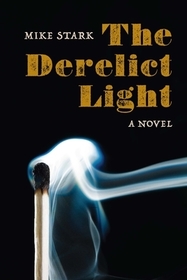
Stahl's Deprescriber's Guide
-
20% KEDVEZMÉNY?
- A kedvezmény csak az 'Értesítés a kedvenc témákról' hírlevelünk címzettjeinek rendeléseire érvényes.
- Kiadói listaár GBP 59.99
-
28 660 Ft (27 295 Ft + 5% áfa)
Az ár azért becsült, mert a rendelés pillanatában nem lehet pontosan tudni, hogy a beérkezéskor milyen lesz a forint árfolyama az adott termék eredeti devizájához képest. Ha a forint romlana, kissé többet, ha javulna, kissé kevesebbet kell majd fizetnie.
- Kedvezmény(ek) 20% (cc. 5 732 Ft off)
- Kedvezményes ár 22 928 Ft (21 836 Ft + 5% áfa)
Iratkozzon fel most és részesüljön kedvezőbb árainkból!
Feliratkozom
28 660 Ft

Beszerezhetőség
Még nem jelent meg, de rendelhető. A megjelenéstől számított néhány héten belül megérkezik.
Why don't you give exact delivery time?
A beszerzés időigényét az eddigi tapasztalatokra alapozva adjuk meg. Azért becsült, mert a terméket külföldről hozzuk be, így a kiadó kiszolgálásának pillanatnyi gyorsaságától is függ. A megadottnál gyorsabb és lassabb szállítás is elképzelhető, de mindent megteszünk, hogy Ön a lehető leghamarabb jusson hozzá a termékhez.
A termék adatai:
- Kiadó Cambridge University Press
- Megjelenés dátuma 2026. január 31.
- ISBN 9781009642200
- Kötéstípus Puhakötés
- Terjedelem512 oldal
- Nyelv angol 700
Kategóriák
Rövid leírás:
Combines evidence-based data with clinically informed advice to support everyone who is deprescribing psychotropic medications.
TöbbHosszú leírás:
For decades, psychiatry has focused on initiating treatment-which medication to prescribe, in what dose, and for how long. But what happens when treatment needs to stop? How a medication is stopped is just as important as how it is started, and abrupt discontinuation can lead to unnecessary suffering, relapse, and often preventable withdrawal symptoms. Based on the principles of the bestselling Stahl's Prescriber's Guide, this essential resource provides user-friendly guidance on deprescribing or switching psychotropic medications safely and effectively. 64 medications are presented in a consistent format to facilitate rapid access to deprescribing information. Divided into color coded sections, the book allows the reader to identify key details about when and why to deprescribe, the risks and mechanisms of withdrawal, tapering protocols, cross-titration strategies, and how to distinguish withdrawal symptoms from relapse. Evidence-based recommendations and expert clinical insights make this a must-have manual for all psychiatric prescribers.
'Deprescribing medications is a necessary skill for all clinical psychopharmacologists, and is not a trivial task. Drs. Strawn and Stahl impart their collective wisdom as they meld their own experiences with what the medical literature informs us, offering advice for implementing winning strategies. Sagely eliminating medications that interfere with others is essential to the practice of optimal, and personalized, care. The key concept is that gradual dose reduction is often required to avoid 'rebound effects' but there are others that can be safely stopped abruptly - the wise practitioner will know which is which. Organized alphabetically, together with an index by drug class, the book is user friendly and thus easy to consult. Profusely illustrated with the award-winning figures that have made Stahl's series of books from Cambridge University Press famous, this book belongs on the shelves (and e-readers) of all clinicians involved in the care of people receiving psychotropic medications.' Leslie Citrome, MD, MPH, Clinical Professor of Psychiatry and Behavioral Sciences, New York Medical College, Valhalla, New York; Adjunct Professor of Psychiatry and Behavioral Sciences, Northwestern Feinberg School of Medicine, Chicago, Illinois
Tartalomjegyzék:
Introduction; 1. Alprazolam; 2. Amitriptyline; 3. Amphetamine salts (d,l); 4. Aripiprazole; 5. Atomoxetine; 6. Benztropine; 7. Brexpiprazole; 8. Bupropion; 9. Buspirone; 10. Cariprazine; 11. Carbamazepine; 12. Chlorpromazine; 13. Citalopram; 14. Clomipramine; 15. Clonazepam; 16. Clonidine; 17. Clozapine; 18. Daridorexant; 19. Desipramine; 20. Desvenlafaxine; 21. Diazepam; 22. Diphenhydramine; 23. Divalproex/valproate; 24. Doxylamine; 25. Donepezil; 26. Duloxetine; 27. Escitalopram; 28. Eszopiclone; 29. Fluoxetine; 30. Fluvoxamine; 31. Gabapentin; 32. Galantamine; 33. Guanfacine; 34. Hydroxyzine; 35. Imipramine; 36. Lamotrigine; 37. Lemborexant; 38. Lisdexamfetamine; 39. Lithium; 40. Lorazepam; 41. Lumateperone; 42. Lurasidone; 43. Methylphenidate; 44. Mirtazapine; 45. Nortriptyline; 46. Olanzapine; 47. Paroxetine; 48. Pimavanserin; 49. Prazosin; 50. Pregabalin; 51. Propranolol; 52. Quetiapine; 53. Risperidone; 54. Rivastigmine; 55. Sertraline; 56. Suvorexant; 57. Trihexyphenidyl; 58. Venlafaxine; 59. Vilazodone; 60. Viloxazine; 61. Vortioxetine; 62. Ziprasidone; 63. Zaleplon; 64. Zolpidem.
Több











